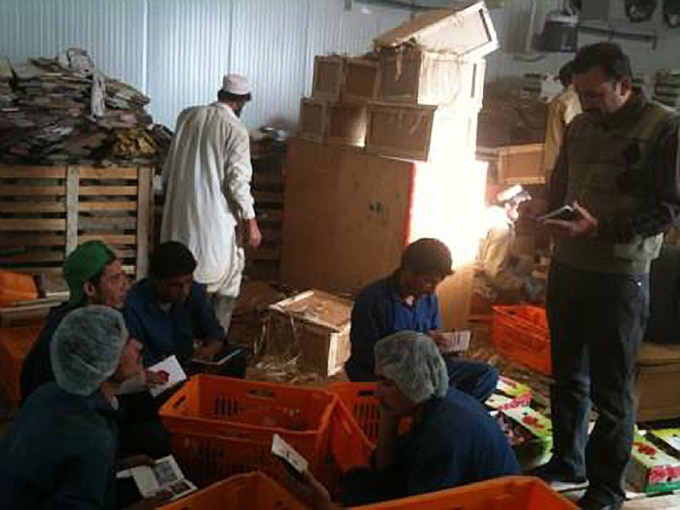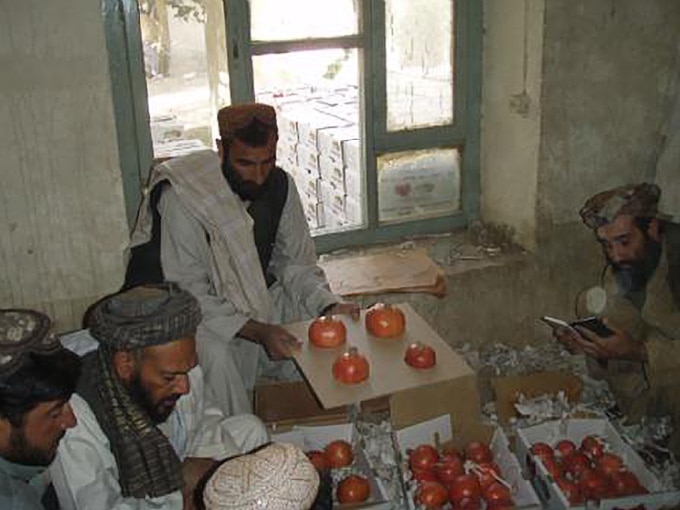In total, 597 Afghan local national individuals (498 farmers, 49 traders, 20 Quality Assurance and Quality Control Monitors and 30 traders assistants), each actively involved in the pomegranate value chain were trained. These individuals were provided
• the on the job training on how to sort, grade, package and maintain the freshness of pomegranates for transport to both the domestic and international buyers;
• the on the job quality control training to ensure the pomegranates being shipped meet the requirements of the specific domestic and/or international market;
• and the monitoring the sorting, grading and packaging process to ensure the producers, packers, graders and traders are meeting the requirements of the specific domestic and/or international market.
A group of experienced extension workers, tasked to conduct the sorting, grading, packaging and freshness maintenance training. The extension workers were briefed on the scope of work and the deliverables for this contract. In conjunction with the extension workers, trainees were identified, a curriculum was decided on and a training schedule and methodology devised.
In the absence of the village collection centers, the training took place in different mosques throughout the district, after the evening prayers. There was enthusiastic support and demand for the training. The extension workers had more trouble limiting the trainee numbers to manageable sizes, than finding willing trainees.
Throughout the harvest the FAF staff and extension workers attended sorting, grading and packing sites in various areas in Arghandab District. During these visits, the extension workers provided additional on the job training in sorting, grading, packing, freshness maintenance and specific requirement adherence. This opportunity was also used to monitor and practically demonstrate the monitoring principals taught to the trainees. The extension workers showed the farmers how to take random samples to ensure that the packed boxes of pomegranates adhered to the requirements of the respective markets. The importance of uniformity and appearance of the fruit was emphasized and the economic benefits thereof explained.
In summary, the farmers were motivated to learn. They know pomegranates and depend on the production and marketing of this fruit for their livelihood. They are keen to develop their production capability and capacity, in order to increase their income.
 Training session using an export shipment
Training session using an export shipment

